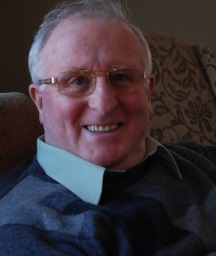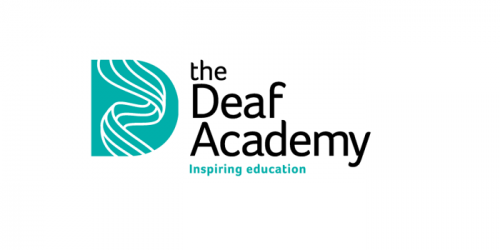Harry Kernohan 17th Feb 1936 – 20th June 2014

Claire Prescott writes:
Harry undertook his initial ToD training at Manchester University in 1968/1969.
He took an Audiology Master’s degree in Manchester in 1973.
He worked at Wall Hall from 1975 until 1991 running the one year full time course training ToDs.
During his time at Wall Hall he also trained many teachers from overseas to become ToDs including from India and Ethiopia.
The ToD course also included deaf students who had access to BSL interpreters.
In addition, Harry set up an Advanced Diploma in Hearing Impairment and helped to establish a Master’s Degree in Special Needs and Research in Education as well as contributing to the BEd and PGCE courses.
Harry was an inspiring person to work with. New challenges were always seen as exciting times and valuable experiences.
I was fortunate to be one of his first cohort of students on both the advanced diploma and then the MEd and then went on to work with him for three years in the mid- 1980s before I moved to Surrey.
Here is the eulogy which was delivered at his funeral.
We have all come here today to celebrate the life of Harry Kernohan, who was by all accounts a remarkable man. His family were somewhat surprised that he had not taken this opportunity to write something spectacular and memorable on his own behalf but modesty must have prevailed. The time available to us today is inadequate to do justice to this man whose personality and character was certainly larger than life and whose memory is held dear by those who loved him. Born in a cottage by the Kells water river, Harry told his three girls stories of how he slept in a drawer and learned to walk holding on to the dog’s tail. The youngest of five children, he was (by his own account) the bonniest baby in Ballymena, all the women fighting over who would get to hold him or walk him. These tales did in fact turn out to be true, unlike his claims to have won medals for his Irish dancing.
Despite spending days wandering the fields while he was supposed to be at school, Harry was a particularly gifted student. As a result of the introduction of the 11 plus exam, he secured a place at the Ballymena Academy. He worked hard, carrying his books strapped together with an old belt and, according to him, walking uphill to school both coming and going. He did his homework by lamplight and said Latin was a particular challenge, as he didn’t even speak the Queen’s English let alone a foreign language, and a dead one at that. He eventually passed his Latin exam by virtue of memorizing the entire text the exam was taken from.
After completing his teacher training at Stranmillis he went back to Ballymena Boys, this time as a teacher. His daughters recall that a great advantage of having a science teacher for a father were the experiments he would bring home to perfect before using them in the classroom. Who else gets to play with dangerous chemicals and dry ice in their garage as kids. Of course they soon became aware of the risks of asking for help with homework as this had the potential of an hour (or longer) presentation with diagrams, accompanying slides and maybe a few experiments to fully comprehend the underlying processes.
After additional training in Manchester, Harry began his career as a teacher for the hearing impaired. He worked at Jordanstown School for the Deaf for a number of years and is fondly remembered (on the whole) by his students. He had a reputation as a firm but fair teacher who held all his students to a high standard but with good humour and a compassion for the unique needs of each individual child. After Jordanstown and yet more qualifications, Harry set up the highly regarded course for Teachers of the Deaf at what would eventually become the University of Hertfordshire. He was finally able to introduce the use of sign language to the training process and sat through the lectures alongside his students.
Harry had a prestigious career in Deaf education, however he never measured his success by the titles or accolades he gathered but rather by the ability he had to make a positive impact on the lives of children. After early retirement in 1991 he returned to Carrickfergus and became a peripatetic teacher with the South Eastern Library Board, visiting hearing impaired children in school and in their homes, assisting parents, carers and teachers to understand the challenges faced by these children and ways they could assist them in overcoming them. Most importantly he taught them not to underestimate the capabilities and skills of the children in their care and ways to challenge them and allow them to achieve their full potential. He said these were the best 10 years of his career. As the only man in the office, left largely to his own devices and making a positive impact in the lives of hearing impaired children and their families, he was in his element. His female colleagues referred to themselves not as Charlie’s Angels, but Harry’s Girls.
When he finally retired from teaching he was free to fish, paint, garden and indulge in his passion for travel. He and Kathleen had met while on holiday in Switzerland in 1967 and even while the girls were young he would drag them all over Europe, first in a trailer tent, then in a caravan and eventually staying in hotels. Destinations became further afield and more exotic as the girls got older. Harry could often be seem leaving the bank, an outmanoeuvred bank manager in his wake and heading straight into the travel agent to arrange the next trip. In later years he would drag his niece Anne and her husband Willard on similar adventures, both of whom are still somewhat traumatized by the experience.
A firm exponent of the idea that “travel broadens the mind” he saw the responsibility to provide these opportunities to his children as second only his responsibility to provide a roof over their head and food on the table. And if the food happened to be bread and jam for tea while Mum was out at work, so be it. As the father of three girls Harry was a committed feminist, although when it came to decorating their ballet tutus he was also an early adopter of the ‘you can NEVER have too many sequins’ school. He was a ‘hands on’ father long before the term was coined, wearing out the knees of his good trousers crawling around on the floor playing with the girls, making up games and reading stories. He never spent more time away from them than absolutely necessary and involved himself fully in their pursuits.
Harry always considered himself to be the most fortunate of men. He had spent his life working at something he cared about passionately. He and Kathleen had raised their three girls and he had managed to create in them three mini Harrys with their drive for lifelong learning, enthusiasm for travel and compassion for others. He had travelled the world and visited places he could never have dreamt of as a child. Harry possessed a sincere, compassionate and generous soul. His brother Wilson recalled the time when Harry was 14 years old and emptied his savings account to buy his niece a dolls pram. That money was hard come by, but Harry considered it the best possible use of it and never mentioned it again. After he retired he enjoyed planning and hosting his ‘Family Quiz Nights’ with goodly prizes he had been collecting for weeks in preparation. He enjoyed having his extended family around him, and especially his role as ring-master with games and quizzes produced by him especially for the occasion.
Harry believed that a person should be measured not by their status or the car they drive but by their deeds and commitment to their principles. He demonstrated this through how he lived his life. He was a role model who held steadfastly to a firm set of principles which enabled him through his work and personality to affect many people. All of us here today have at some point during our lives met someone that has made a significant impact and everlasting impression upon us. Many people have mentioned Harry as being one of these people. He was an exceptional man who had the ability to make a difference to other people.
Kathleen and the girls feel lucky to have had this person in their lives every day but to them he was a husband, father and grandfather whose greatest strength was his natural and enduring ability for unconditional love.




